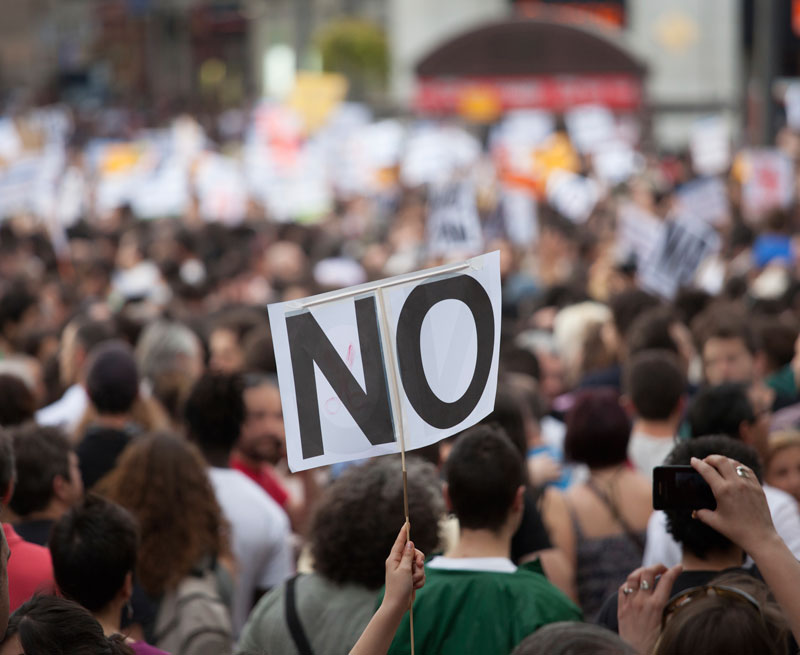Hundreds of fast-food workers in New York City early this month protested low wages and the inability to unionize. It was just one of myriad demonstrations that have unfolded across the country in recent months as workers rally against what they perceive to be unsatisfactory workplace conditions.
While experts don’t believe quick-service work stoppages will find much, if any, large-scale traction, they warn that major operators like McDonald’s, Chipotle, and Taco Bell should still take wage disputes seriously.
John Hancock, an attorney with Butzel Long in Detroit, says quick-serve companies should be careful not to turn up on the wrong side of public opinion and drive away customers who might rally to the cause of workers.
“I think there are enough people who sympathize with these workers that if you had a sign saying ‘pays low wages,’ they’d stop going [to that establishment],” Hancock says. “That would get the owner’s attention.”
A public campaign to “embarrass companies into changing their practices is more likely to have staying power” than attempts by workers to unionize, says Richard Hurd, professor of Industrial and Labor Relations at Cornell University. And while some operators will try to improve conditions, those that resist or ignore demands for change “might see themselves in the public spotlight,” he says.
McDonald’s is one company that found itself in the spotlight with the recent New York City protests. Several McDonald’s employees participated in the demonstration.
“We value our employees’ well-being and the contributions they make to our restaurants, and thank them for what they do each and every day. All of our employees deserve to be treated with dignity and respect, and we will continue to discuss ways we can continuously improve and provide a positive work environment for all,” McDonald’s USA says in a statement.
“The majority of McDonald’s restaurants across the country are owned and operated by independent businessmen and women—the majority of whom offer their employees competitive pay and access to tiered benefits that best meet their individual needs. These are complex, but important issues—to our employees, our franchisees, and our company.”
Hancock, who specializes in collective bargaining negotiations and arbitrations, as well as counseling of both public and private employers, says the quick-serve industry’s notoriously high turnover will make it nearly impossible for workers to effectively mount an organized, sustained labor dispute.
“Until virtually the entire workforce becomes lifers instead of staying in one particular job for, say, six months, chances are it will be difficult for them to organize and achieve enough unity to make going on strike [and meeting their objectives] a reasonable option,” he says. Further, most workers would probably be financially hard-pressed and too concerned about job security to walk off the job to join a picket line, Hurd says.
Ruth Milkman, sociology professor at the City University of New York Graduate Center, says unions have a hard time succeeding today because the nation’s labor-law system tends to favor employers. Only a sustained organizing effort can overcome that, Milkman says.
Even if quick-service employees succeed in getting the attention of their employers, Hancock says, it’s unlikely they’ll receive a pay rate of around $15 like they’re demanding, particularly as the economy struggles to reboot. He thinks a single-digit percentage increase would be more likely.
According to the Bureau of Labor & Statistics, in 2011, the median hourly rate for fast-food cooks was $8.80 an hour, or $18,720 per year.
Unionization or not, Milkman believes employers could benefit from boosting worker pay. “If wages rise in the industry as a whole in a given local labor market, employers aren’t harmed and, indeed, benefit in some ways, like decreased turnover and better morale,” she says.
Hancock points to Henry Ford, who started paying workers $5 an hour even before the formation of the United Auto Workers
“It [doubled their salary], which was unheard of. He said, ‘If I want to create customers, I’ve got to pay them that much,’” Hancock says. “At $8 an hour, I don’t think you have anyone who can buy at McDonald’s. So if you’re interested in your own workers buying from you, you might have to pay more.”
Hurd says companies that increase their minimum wage can expect a spike in employee effectiveness. And, because many employees are already at the bottom of the pay scale, it’s well within the capabilities of a company to absorb relatively modest pay hikes, he says.
“If they can’t, they’re probably going to be in trouble anyway,” Hurd says.













